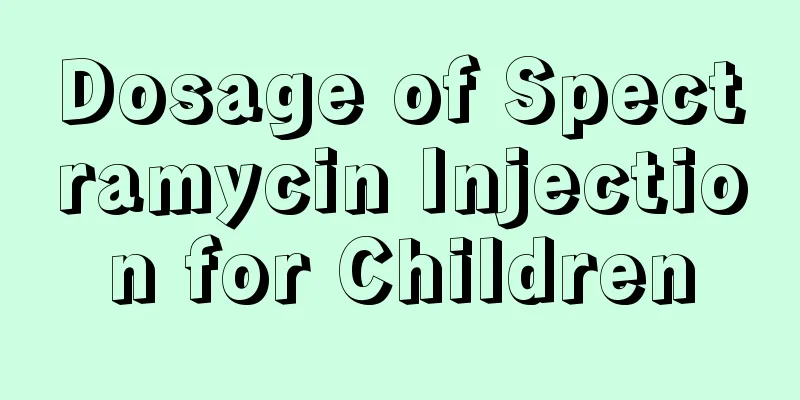What is the cause of swollen lymph nodes in the child's neck?

|
Swollen lymph nodes are not exclusive to adults. Even infants and young children may suffer from swollen lymph nodes. Especially for babies aged 7-10 months, the chance of suffering from swollen lymph nodes is much higher than that of adults. For infants and young children, swollen lymph nodes on the neck will generally heal on their own after a period of time. If the swollen lymph nodes become purulent, treatment is required to eliminate the symptoms. So what exactly does it mean when a child has swollen lymph nodes in his neck? Sometimes you can feel lumps of varying sizes behind the ears, neck, under the jaw, and at the base of the thighs of children. Most of them are mobile and can slide under the skin. These small lumps are lymph nodes. Because lymphatic tissue, especially lymph nodes, develop rapidly within one year of age, healthy children may feel lymph nodes in superficial parts of the body such as behind the ears, neck, under the jaw, armpits, and groin (i.e., groin). However, the lymph nodes in these areas are normally no larger than soybeans, are mostly single, soft in texture, can slide under the skin, are painless, and are not adhered to the surrounding tissues. However, lymph nodes should not be palpated under the chin, supraclavicular fossa, or elbows. In some abnormal cases, lymph nodes may also become abnormally swollen. Because lymph nodes can produce lymphocytes in the blood, these lymphocytes have the function of defending against bacteria. The lymph nodes in various parts of the body are connected to the surrounding organs or tissues by lymphatic vessels, just like "sentry posts" around the body. When the neighboring tissues or organs are attacked by bacteria, they can kill the bacteria and prevent them from spreading outward. As a result, the lymph nodes themselves become enlarged, can be felt, and may be painful or tender. Therefore, the location of the bacterial infection lesion can be inferred from the location of the swollen lymph nodes. For example, enlarged submandibular lymph nodes may be caused by inflammation of the oral cavity and pharynx, and enlarged occipital lymph nodes may be caused by inflammation of the skin on the head and back of the neck. If your baby's lymph nodes are the size of a date pit, it may be caused by inflammatory stimulation. It is recommended that you go to the hospital for treatment to rule out other diseases. After knowing what is going on with swollen lymph nodes on a child's neck, if the baby's swollen lymph nodes have become festered, as a parent you must take the baby to the doctor for treatment in time, and be careful not to get infected. Use iodine or alcohol to disinfect the baby's affected area in normal times to avoid infection. |
<<: Introduction to the difference between wind-cold and wind-heat cold in children
>>: What is the best way to treat asthma in children?
Recommend
The most effective way to treat jaundice
After a child is born, many vital signs need to b...
What to do if your child has a fever and wants to sleep
Every time a child has a fever, parents will feel...
Does anesthesia affect children's intelligence?
Anesthesia during surgery is very important for t...
What is the standard amount of milk for a one-year-old baby?
When facing every newborn, every mother is a new ...
What should I do if my baby sucks his fingers for two months?
As the baby grows day by day, there will always b...
The buttocks were beaten red and swollen
Every child is rather naughty, especially when th...
Six and a half months baby food arrangement
I believe everyone knows the fragility of babies....
What to do if your baby has too much hair
Some babies have particularly heavy body hair, wh...
What medicine is used for children's paronychia
The main cause of paronychia is that the nails ar...
What should children eat more in autumn?
What should children eat more in autumn? High pro...
What can children eat to grow taller the fastest?
During the development period of children, it is ...
What are the symptoms of abdominal distension in babies?
Everyone knows the feeling of abdominal bloating,...
Nursing of intussusception in children
Generally, intestinal intussusception occurs more...
What to do if your baby snores and holds his breath while sleeping
Some babies snore when they sleep, and many paren...
Which baby shaping pillow is better?
When a baby is born, all parts of his body are ve...









